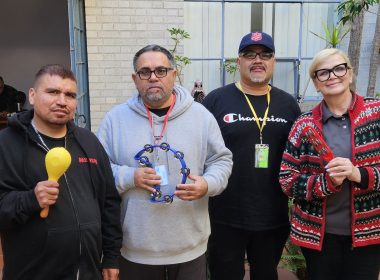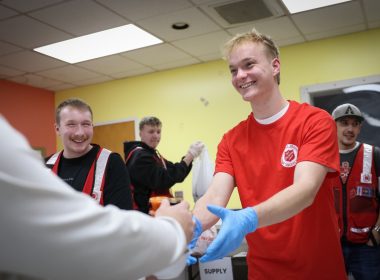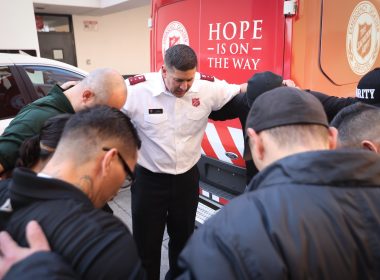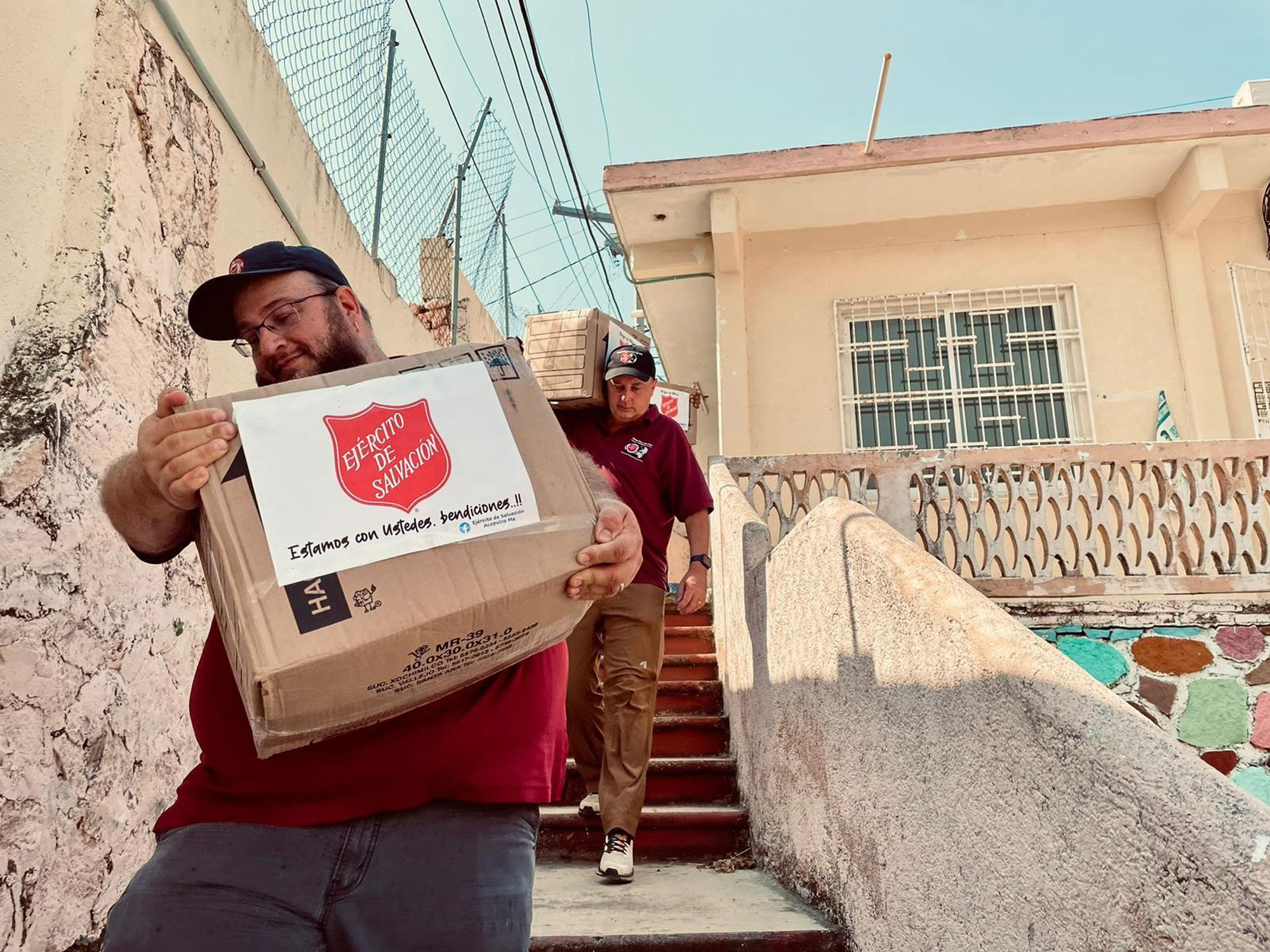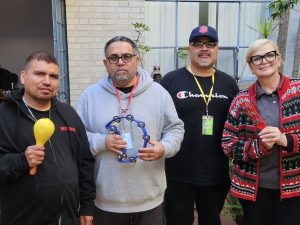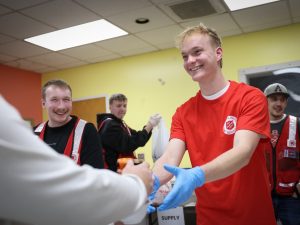The people of Acapulco, Mexico, are still feeling the effects of Hurricane Otis, the Category 5 storm which hit the city in late October.
The hurricane sustained winds of 260 kilometers per hour (km/h) with gusts of 315 km/h, causing severe damage to the city as well as Salvation Army facilities, including the Acapulco Children’s Home. Children from the children’s home were evacuated to safe locations.
Fallen trees and damaged buildings had cut off essential services, including electricity, major roads, drinking water and communications.
Emergency Response
The Salvation Army’s Mexico Territory and International Emergency Services (IES) team at International Headquarters had been closely monitoring the situation and were able to act as soon as the storm hit.
It took the team more than 20 hours to reach the area from Mexico City because debris blocked some of the major road networks. When they arrived in Acapulco, they established an emergency canteen and an operations center so that they could prepare and deliver food and water to locals who had been affected by the hurricane and to local first responders.
As of Nov. 13, the emergency canteen has distributed more than 3,500 meals since it opened. Additional support, including the possible provision of supermarket vouchers, is being explored.
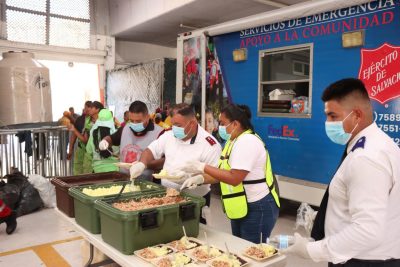
“The Salvation Army in Mexico was able to act quickly to support the community in the crisis, including helping to clear debris from roads and preparing and distributing food and water,” said IES Director Damaris Frick. “I thank the Mexico Territory and international Salvation Army personnel who are working tirelessly to support everyone affected. Please pray for our officers and the people affected in the city of Acapulco.”
Starting to Rebuild
Capital Divisional Commander Major Reyes Cervantes, along with Divisional Emergency Coordinator Captain Hiram Martinez, traveled to the city of Acapulco with nine officers, eight cadets (trainee officers) and 25 volunteers from Acapulco, Mexico City, Querétaro and Villahermosa. This team has been assisting in the efforts to clear debris from roads, provide meals for those who have been affected and assess how the community can rebuild damaged buildings and infrastructure.
The IES team, in conjunction with the Mexico Territory, has begun actioning short and long-term response plans and is working closely with government bodies and local authorities.
IES Program Officer Captain Matthew Beatty and USA Eastern Territorial Emergency Disaster Services Director Bobby Myers arrived in Acapulco and are providing expert advice on the next steps of managing this crisis.
“We have been working with government bodies and the Mexican Navy in Acapulco to ensure that Salvation Army personnel can safely access the affected areas,” Territorial Commander Colonel Ricardo Fernandez said. “I commend the efforts of our personnel on the ground working hard to support the emergency service workers and affected community members.”
Report by IHQ Communications
Do Good:
- See how The Salvation Army supports disaster survivors.
- Have you ever found yourself wanting to volunteer but unsure of what to do or how to go about it? Here’s the key: You can make an impact for good with whatever time and skills you have. Whatever your interest, there is a you-sized need for goodness in the world. Get the guide on How To Be An Impactful Volunteer with nine habits to make a difference when giving back.


